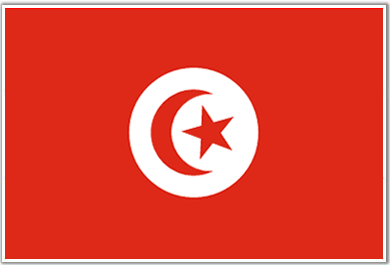Determining the success of the Arab Spring is difficult because of how recently it occurred. Only after years have passed will it be possible to judge whether or not these protests led to real long-lasting changes for both society and government.
In the midst of excitement over the new possibility of democracy, the rise of Islamism as the next mode of Tunisian government has raised concerns within Western political thought. However, the recent elections in Tunisia have proven that while Islamist movement can rise to power, Islamist discourse can be moderate, and thus holds the same democratic potential as does a secular party.
After the Arab Spring, fears over the rise of Islamist parties are widespread. They are often based on a stereotypical extremist perception of these groups. An idea of the implementation of Shari’ah—which is widely thought of as too conservative—into society worries Western powers because it seen as contradicting individual human and political rights. The law places in based on the sovereignty of God, severely limiting the power of the people, as in the adoption of inheritance law which grants women a third of the property allotted to their male counterparts.
However, this limited understanding of Islamist parties does not correspond with reality.
Tunisians took to the poll for the first time since the country’s revolution on October 23, 2011 and elected Ennahda, a moderate Islamist party with 90 of the 217 seats in the assembly. The party was to subsequently draft a new constitution for the country. Along with Ennahda, the Republican Party and the Democratic Forum for Labor and Freedoms gained significant proportions of seats within the new commission.
With all the doubts that rose out of the election in favour of Ennahda, further research into its platforms have proven it to be much more moderate than generally believed. Ennahda’s founder Rachid Ghannouchi, has described the party as moderate, democratic and tolerant. He enumerated some of the changes Ennahda hoped to bring about in Tunisia, stating that while Islam would be allowed a return into public life, minority religons would also be accommodated. Women’s rights would receive special emphasis, as by scrapping mandatory implementation of headscarves.
For these changes, Ennahda has been linked many times to the AKP, the ruling party in Turkey, which similarly supports liberalization.
But will these social changes will translate into democratic outcomes over the long run? Ennahda’s willingness to work within a coalition seems to point to an affirmation. Whether in Canada, the United Kingdom or the Netherlands, parties must prove that they can compromise their objectives to accommodate the will of the people within a coalition government. This is no different in Tunisia. With only 90 seats, Ennahda will be unable to govern on its own and is therefore, must align with Ettakatol, a secular party. Willingness to compromise is key to the possibility of democracy. Within this framework, Ennahda could not push for radical ideas that Islamist groups are often linked with.
This does not mean that Tunisia’s elections and results were perfect. Ennahda was by far the most organized and well-funded party that emerged after the evolution, but was banned under the Ben Ali regime. Rachid Ghannouchi, then living in exile in London, saw his movement crushed by Ben Ali’s regime. Through its members’ dedication, the party regained support quickly. The party’s success can be linked to its superior organization structure and internal institutions, but it also meant that other parties lacked the time to develop their own platforms and support bases. Secular parties were not able to unite under a single banner, plagued by internal leadership disputes. Given more time to develop, such parties might have gained prevalence and the elections would have gone differently.
If Ennahda does live up to its democratic potential, these political parties may be able to develop in preparation for Tunisia’s next election.
Tunisia’s poltical concerns are not limited to the aforementioned, but are varied and multitudinous. Questions will continue to arise regarding whether or not Ennahda’s political actions are fundamentalist or progressive. Will Ennahda implement democratic changes? Will these changes be consolidated in further elections? For now, it is impossible to see. In the present, however, the road seems bright for Tunisians.
 Log in
Log in









